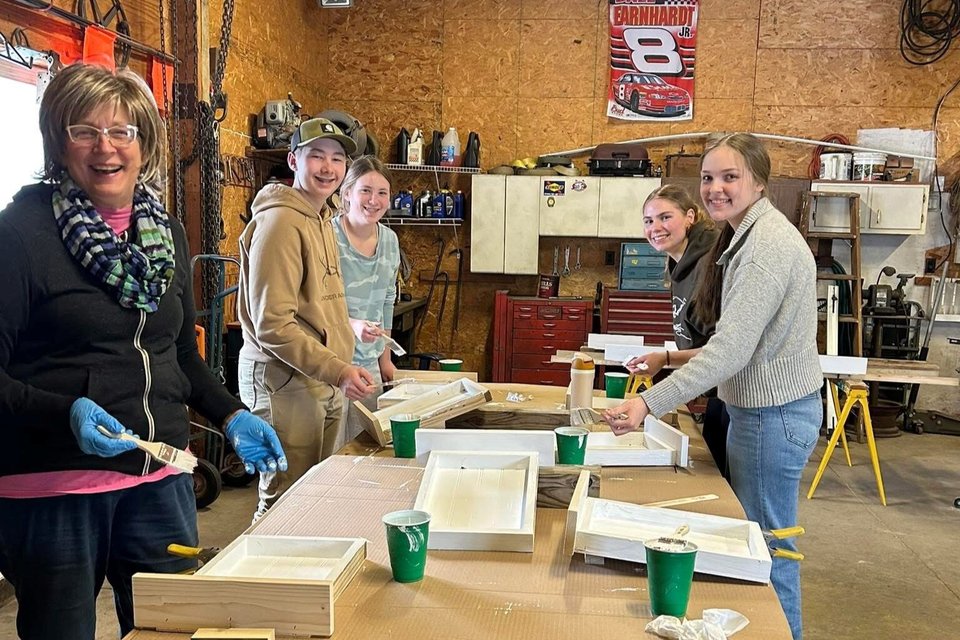For a century, Society of St. Vincent de Paul has offered a free camp for disadvantaged children on Lake Huron's peaceful shores
CARSONVILLE — For 100 years, Camp Ozanam has withstood the test of time. It's weathered the Great Depression, the Detroit riots, World War II and the COVID-19 pandemic and has remained a safe, fun place for children in southeast Michigan for a weeklong retreat each summer.
Located on Lake Huron in Michigan’s Thumb on the same property since opening in 1923, the free camp operated by the Society of St. Vincent de Paul has hosted 128,133 children, ages 8 to 14, many of whom have returned as volunteers, counselors, staff or have sent their own children and grandchildren to enjoy camp as well.
Over five weeks, campers cycle through the campgrounds: a new group of campers arrive every Monday and stay through Saturday — children 8 to 12, boys and girls, enjoy a traditional camp program, while 13- and 14-year-olds participate in an “adventure camp,” which switches between boys and girls every other week.
While many things have changed over the years, in general, the spirit and legacy of the camp remains the same, said Julia Hohner, director of camp services for St. Vincent de Paul, Detroit.
Founded in 1833 by Frederic Ozanam in Parish, France, the St. Vincent de Paul Society made its way to the United States in 1845 and to Detroit in 1884. By the 1920s, the society wanted to play a more active role in the foster care system and realized that many Catholic children were being placed in non-Catholic homes.
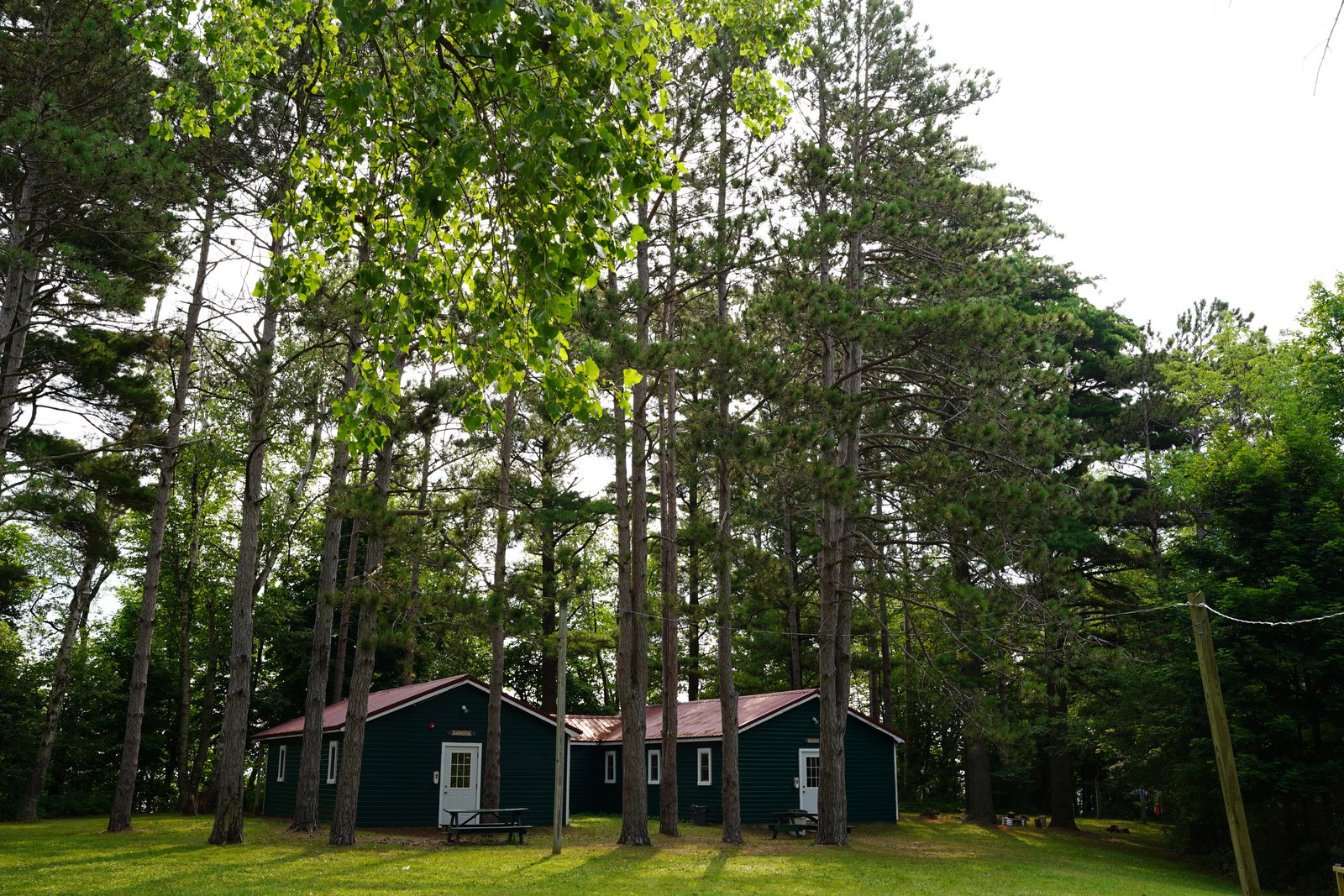
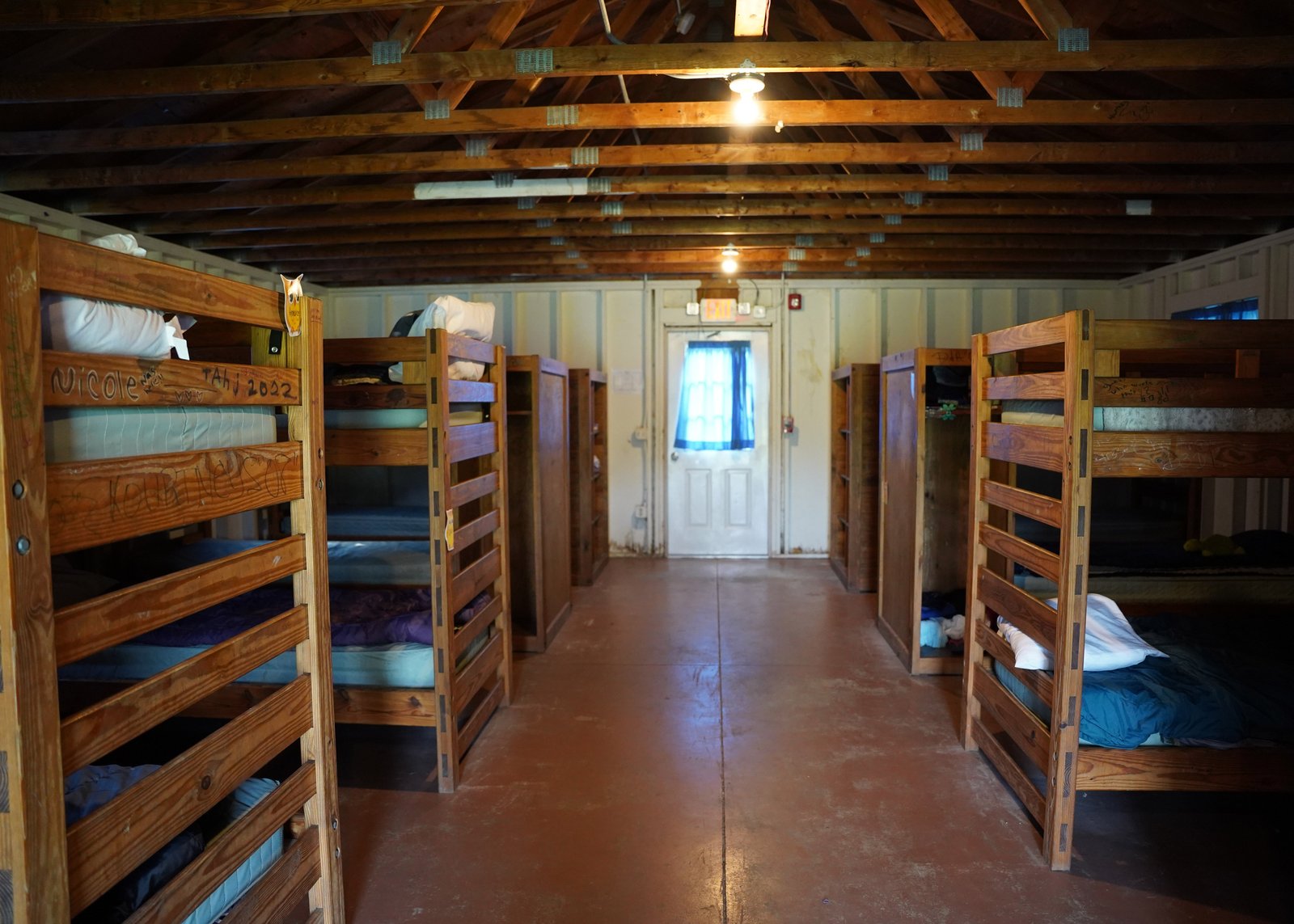
“They wanted some opportunities for Catholic upbringing and orientation,” Hohner explained about the camp’s founding. Hohner, along with others, has been writing a book about the 100-year history of the camp, set to be released for the camp’s anniversary celebration later this year.
Nowadays, the vast majority of the campers are not Catholic, Hohner said.
“We have kids who are all different backgrounds, all different faiths, but the core of the programming has remanded Catholic,” Hohner said. “We keep it really approachable because kids are at all different levels of what they have been exposed to and what they are familiar with.”
The staff makes an effort to invite an archdiocesan priest to celebrate Mass once a week in the chapel. Hohner said the priests generally talk kids through the Mass and explain each part.
“For kids who aren’t Catholic, it is their first exposure to that. For kids who are Catholic, it is still probably a lot of things they have never learned,” Hohner said. “If they aren’t Catholic and don’t want to participate, they don't have to, but we just ask them to be respectful.”
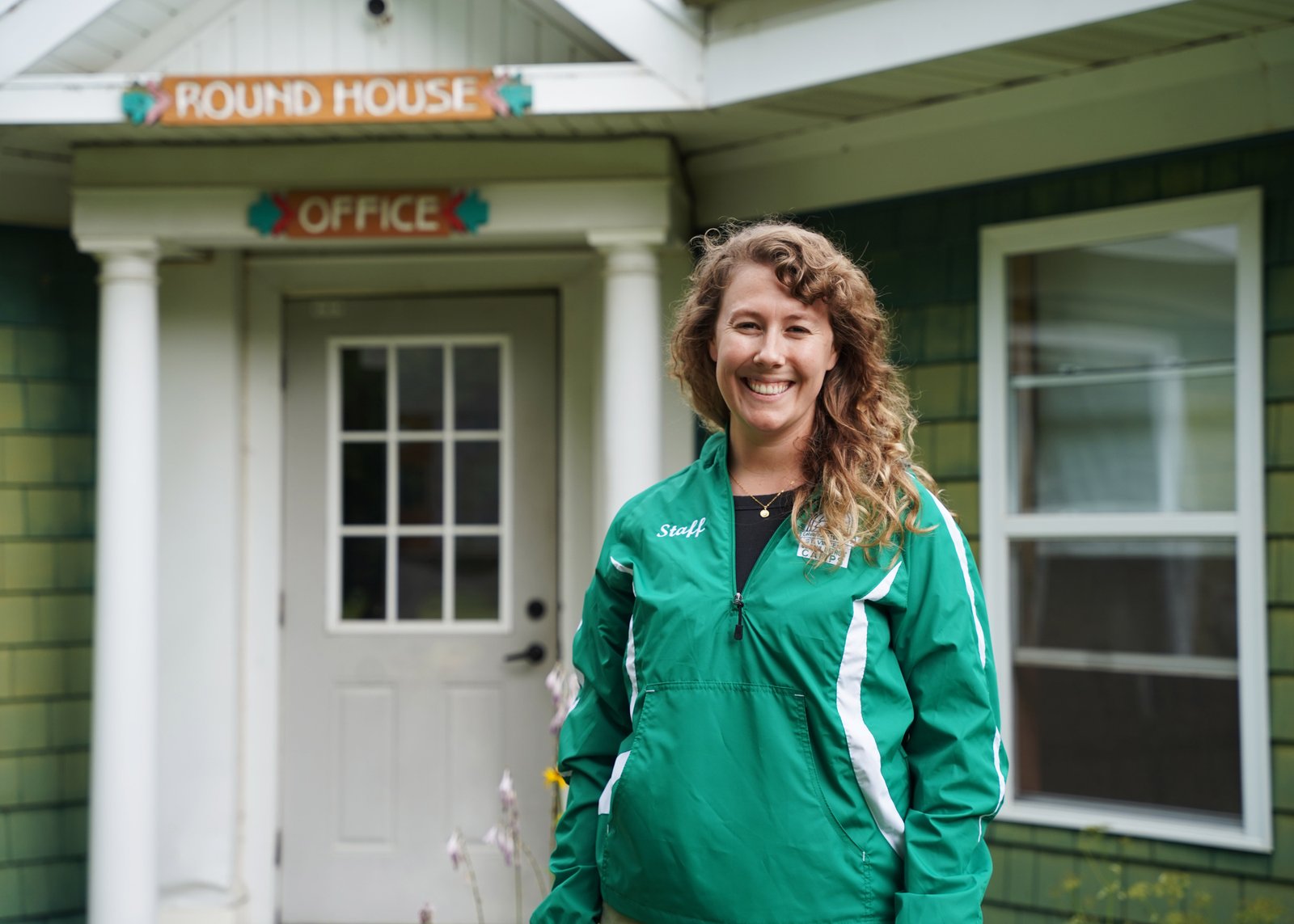
Camp Ozanam’s mission of serving kids who need it most remains the same, Hohner said. Campers are referred through schools, parishes, St. Vincent de Paul chapters across the Archdiocese of Detroit and through Vincentians themselves, St. Vincent de Paul volunteers. The majority of campers come from Detroit, but the camp serves seven counties in southeast Michigan.
In order to keep the camp accessible, Vincentians make themselves available to help children and their families meet the enrollment requirements, which include immunization records and physicals. Vincentians help remove barriers, Hohner said.
Volunteers also provide clean sleeping bags for all campers, in addition to extra pillows and water bottles. Once a camper is enrolled, their families receive a $25 voucher to a St. Vincent de Paul thrift store for any camp clothes or necessities. If more is needed, there is a clothes closet at camp, Hohner said.
This year, many of the campers are coming from difficult home situations, Hohner said.
“We have kids in foster care or who have been adopted out of foster care, kids who have recently lost a loved one or are from a single-family home, or who serve as secondary caregivers for siblings," Hohner said. "We have a lot of kids this year who have recently lost a loved one — a lot of them to violence. These are kids who are carrying a lot of weight.”
In order to prepare for the variety of challenges faced by the kids in their care, the staff undergoes a weeklong training. In addition to standard health and safety training, they learn about child development, early childhood trauma, behavior response, proactive behavior response, and behavior management.
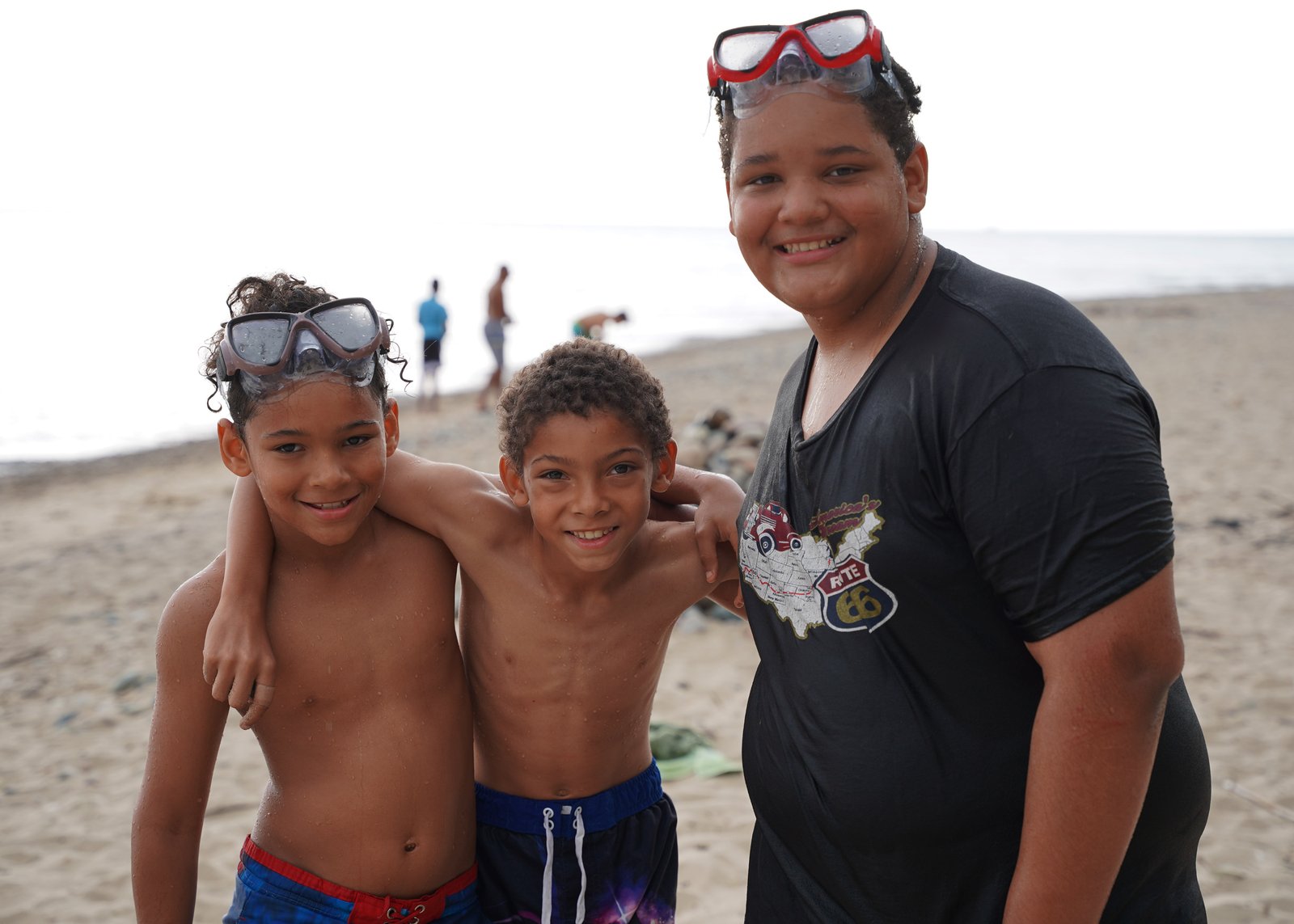
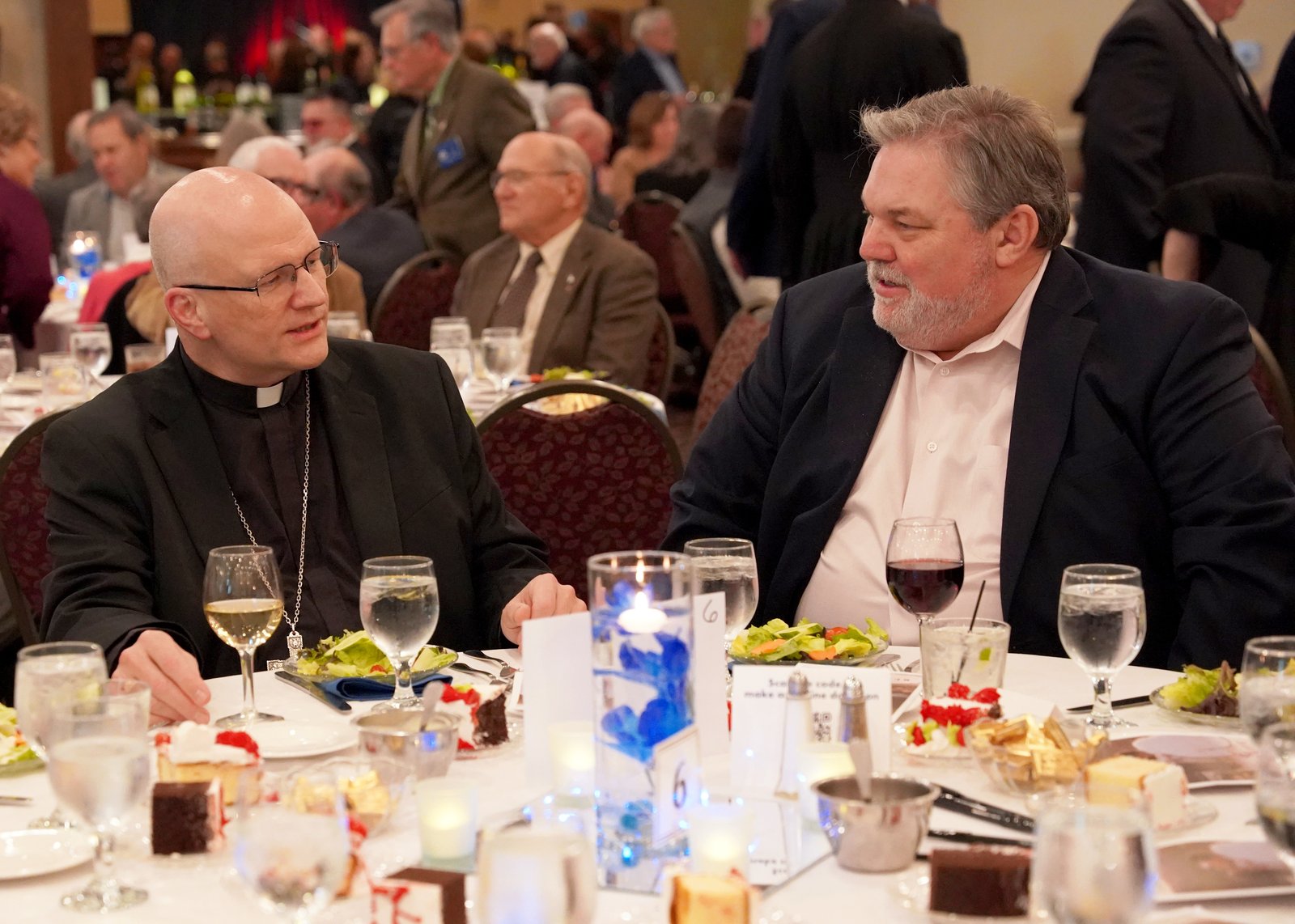
“(We learn) how different types of trauma impact the child’s brain and development and then how to respond in a positive way so (we) can help kids build structure, follow the rules, and socialize well with other kids,” Hohner said. “All of those things are really tough if you’ve grown up in an environment where your instinct is survival instead of just being a kid.”
The environment has proven to be fun and safe for kids to be themselves, but many return year after year because of the staff, Hohner said.
The ratio is one counselor to every eight kids — numbers are lower this year following a year of closure in 2020 because of COVID-19, Hohner said.
Even with challenges like a pandemic, the camp’s history is one of resilience — the camp first catered only to boys until 1940, when the neighboring Camp Stapleton, a former preventorium camp for children whose parents had tuberculosis, became the sister camp for girls. In 2004, the camps merged, and Camp Ozanam became co-ed. Hohner said Camp Stapleton is still owned by the society and rented out as a source of revenue for the camp.
“One of my favorite stories is in 1969 when the moon landing was going to be happening. They didn’t have any TVs at camp, so they were writing to local businesses trying to get one,” Hohner said. “I think they posted an ad in a newspaper, and there was an appliance company that donated two TVs, one for each camp. When the moon landing happened, they woke up all the kids in the middle of the night to go over and watch the moon landing on one tiny TV.”
Hohner said campers from that year remember being woken up in the middle of the night, unsure of what was happening.
That’s not the only time campers have participated in historic events, Hohner said. At the end of World War II, campers went into the nearby town of Port Sanilac for a parade.
“There are folks who talk about when the Detroit riots were happening, kids were at camp, and they were all trying not to tell the kids because they didn’t want to be worried about their families at home,” Hohner said.
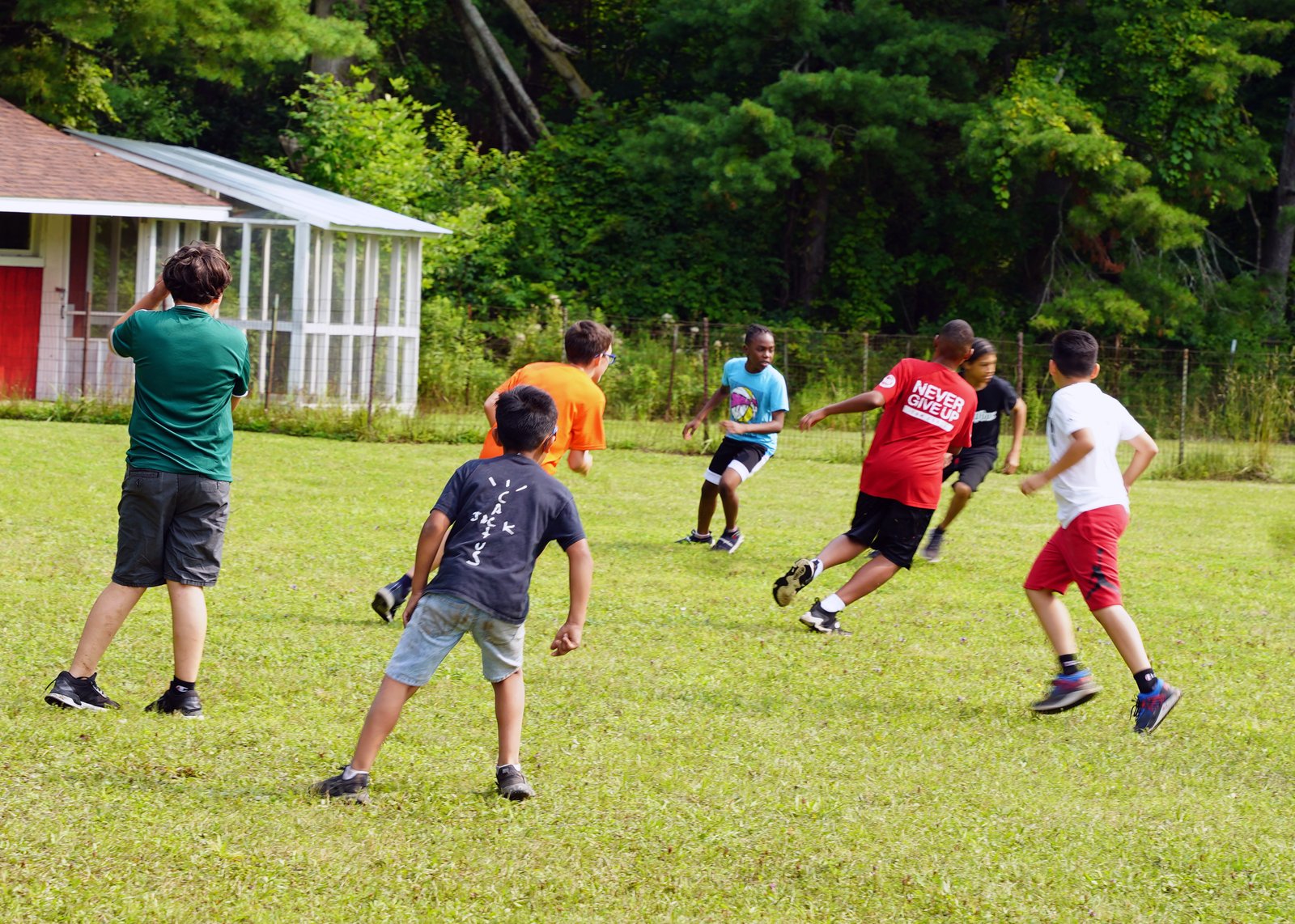
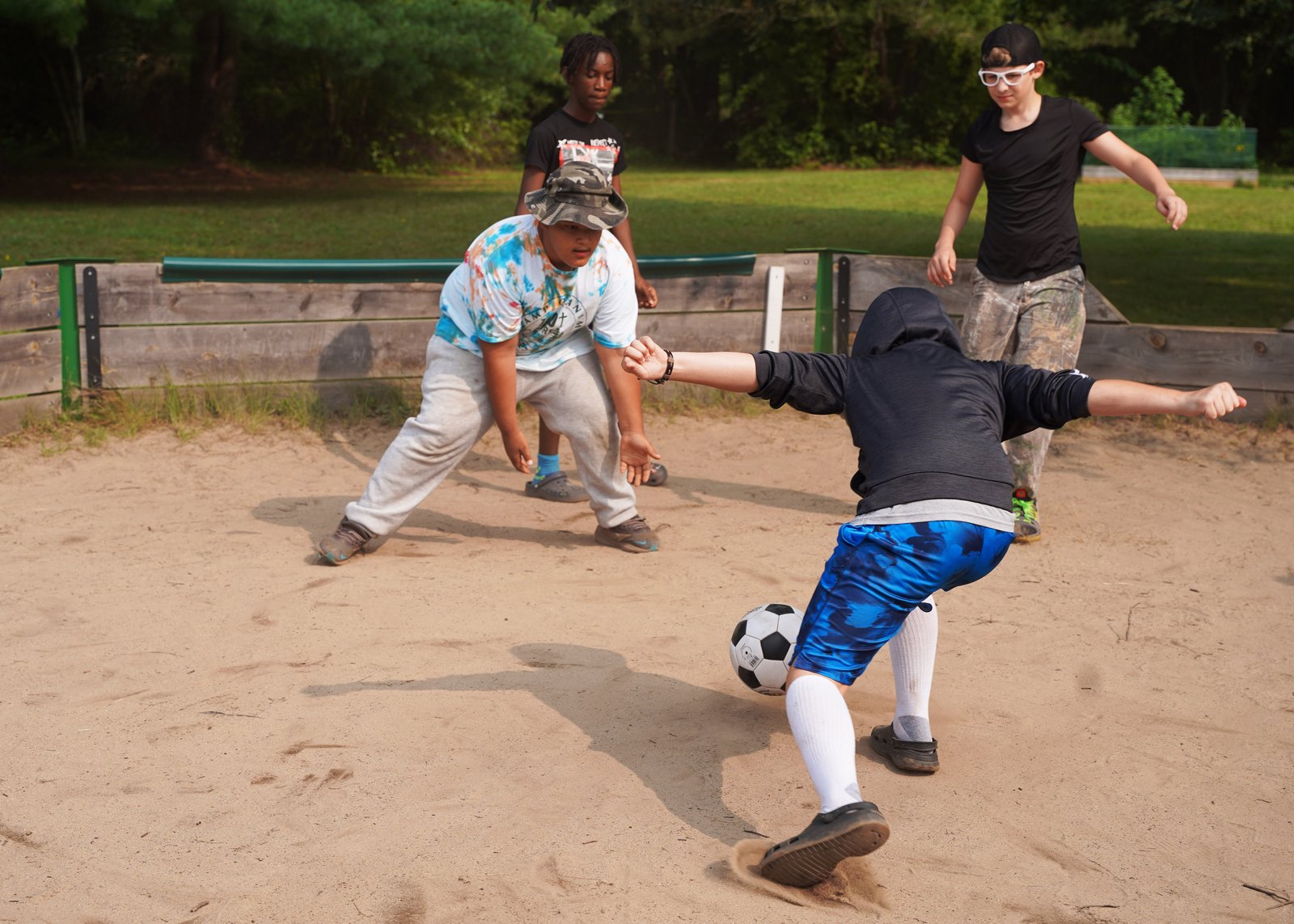
Old camp records indicate that before the cabins were built, campers slept in tents, sometimes two kids to a cot.
“It is just cool to see all the things that camp has gone through and been part of and interwoven with history,” Hohner said. “Every year, no matter what challenges come up, funding, enrollment, pandemics, Great Depressions or world wars — when they weren’t going to be able to get buses because you had to get a waiver from the federal government — without fail, camp keeps coming back.”
Since the beginning of the camp’s history, faith has played an important role, said camp director Ken Pullis, who has served for 21 years at Camp Ozanam and is retiring this year.
Over the years, Pullis has watched campers grow up to become young men and women of faith who are passionate about working with kids and subsequently choose to come back to serve and work at camp.
“I wanted to make sure that the Catholic camp identity was not something that was lost,” Pullis told Detroit Catholic. “There are a lot of summer camps out there, and our niche is the fact that we also bring them Jesus besides the typical camp activities.”
Camp allows children from all backgrounds to come and make new friends, have adventures and retreat to the outdoors, Pullis said.
“An inspiration for me is Pope John Paul II’s quote: 'The closer I am to nature, the closer I am to God,’” Pullis said. “Kids are growing up in such a modern world with all the technology that’s all man-made, and there is a certain peace, tranquility and humility when you come out into nature. You see the huge trees, you see the lake that looks like an ocean, you see the stars like you can’t see in the city, and you hear the sounds of nature. You are in the awe of God’s beautiful creation, and I feel like there is something rejuvenating and maybe even uplifting for the kids.”
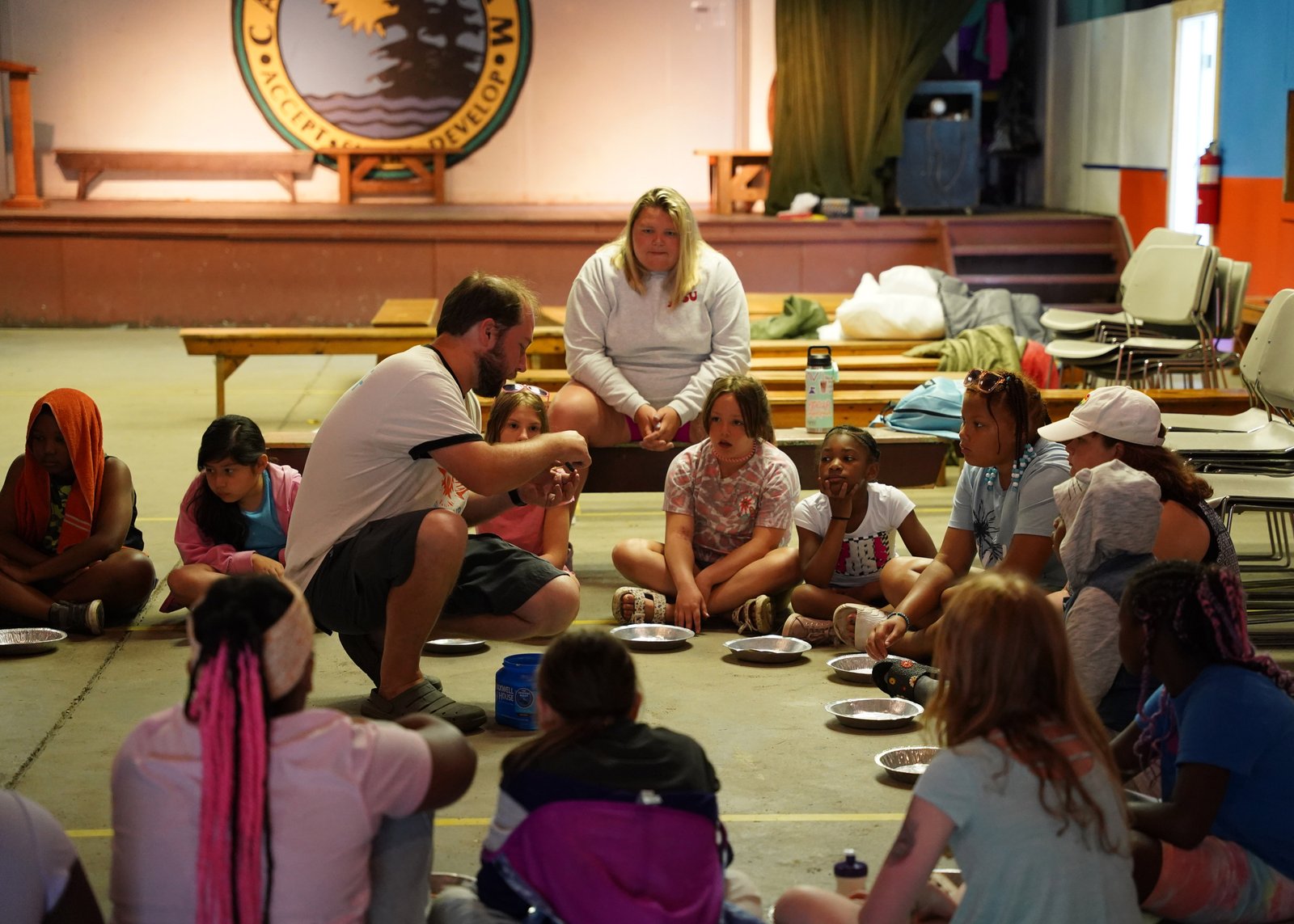
Pullis said he often hears from parents about how camp changed their children — they suddenly see their children praying at meals or asking about Jesus.
“It is gratifying to see it leaving its mark — most kids do want to come back and enjoy the experience and want to give back at some point as a volunteer or staff member,” Pullis said.
One current counselor, 20-year-old Bobby McGee, began attending camp in 2012. McGee said it allowed him an escape as a child and even now as an adult.
“Camp helped me to better comprehend my own emotions and helped me to isolate myself and focus on myself without the worries of home,” McGee said.
McGee sees that transition in campers now. Sometimes when they arrive, they are carrying burdens from home and are in rough shape. However, he said, this changes as the week goes on.
“Camp can help you fully have fun. You can be yourself. You don’t have to worry about anything else, and it allows you to get out of your shell completely,” McGee said. “(I am able) to help out kids who have it really rough at home, and they look at you as a beacon of light. A lot of kids toward the beginning at camp had difficulties going on at home. They looked roughed up, but as soon as they came to camp, they were happy, all smiles, want to give hugs all the time — you can see their spirit brighten up at camp.”
St. Vincent de Paul Detroit Camps 100th Anniversary Weekend
Celebrate a century of free camp at Camp Ozanam during a family-friendly camp weekend, Sept. 15-17, 2023. Overnight accommodations are available. For more details and to purchase tickets, visit the camp's webpage.
Copy Permalink
Youth ministry




